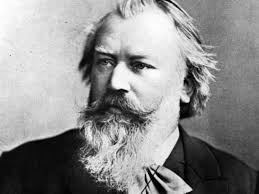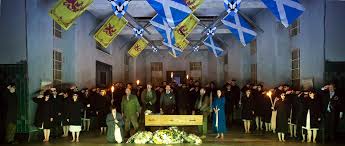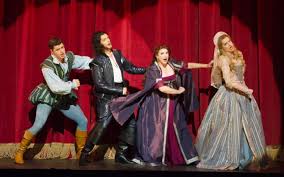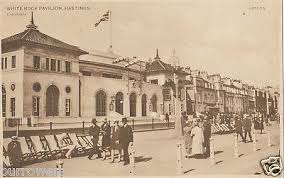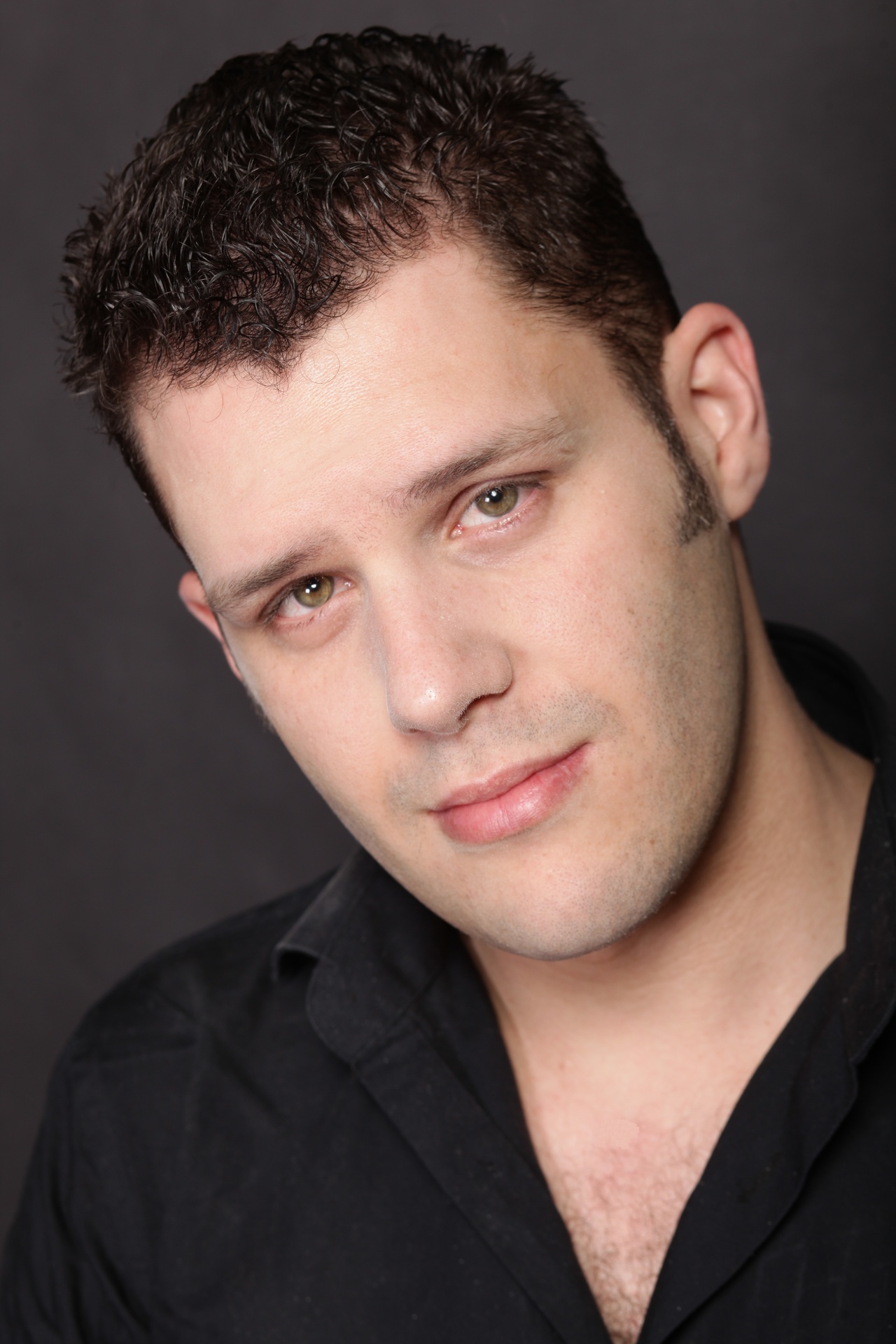Handel: Messiah (arr Davis)
Toronto Symphony Orchestra and Mendelssohn Choir, Sir Andrew Davis
CHANDOS CHSA 5176(2)
Most professional performances of Messiah these days take account of baroque praxis even if they perform on modern instruments. Sir Andrew Davis here takes a very different approach, re-scoring much of the oratorio not only for modern instruments but for combinations which Handel could never have contemplated. For most of the time this works well. Use of clarinets and a more romantic sound for the continuo is easy enough on the ear. The moments which startle are those which involve unexpected percussion – the snare-drum in Thus saith the Lord and the cymbals in But who may abide – and occasionally the over-exuberance of the brass. But it is well sung throughout and for anybody wanting what passed for normal fifty years ago, this may be just the thing.
Wagner: Die Walkure
Honk Kong Philharmonic Orchestra, Jaap van Zweden
NAXOS 8.660394-97
I had enthused about Das Rheingold when it was issued last year and this new Die Walkure certainly lives up to expectation. First of all the acoustic is splendid, giving real clarity to the voices with a sense of space around them, and an orchestral ambience which is constantly enthralling. Stuart Skelton, surely the finest heldentenor now singing, is magnificent as Sigmund, heroic and sensitive throughout and ringingly secure in the top passages. Heidi Melton is a sensitive Sieglinde who warms and develops as the evening progresses. Falk Struckmann, himself a fine Wotan, is a suitably black Hunding. Matthias Goerne and Petra Lang are perhaps better known and live up to expectations, and there are no weaknesses among the Valkyries.
I’m really looking forward to the rest of the Cycle which could easily earn its place among the finest ever recorded. Jaap van Zweden has set the orchestra among the best in the world.
MOZART – PIANO DUETS Vol 1
Julian Perkins & Emma Abbate
RESONUS RES10172 68’04
Successful piano duet playing places particular demands on the performers and here the two pianists are working very well together. This is a programme of more substantive works written for this particular genre. As well as the Sonatas in C major, D major & Bb major the programme also includes Johann Christoph Bach’s two movement Sonata in A major. A second volume, also on period instruments, is to follow.
JOSEPH BODIN de BOISMORTIER – 6 SONATES, Op 51
Elysium Ensemble
RESONUS RES 10171 71’24
Resonus are to be congratulated on their recent output of unusual repertoire. Here is another fascinating disc presenting these six compositions for flute and violin, published in Paris in 1734. This neglected repertoire is made to sound very fresh in these performances.
MUSIC FOR A PRUSSIAN SALON
Boxwood & Brass
RESONUS RES 10177 72’53
The five piece period woodwind and brass ensemble make a lovely sound, bringing this 18th/ early 19th Century music to life in a way that is entertaining and very accessible. Franz Tausch’s XIII Pieces en Quatuor, Op 22 for 2 clarinets, horn & bassoon are presented in two suites which bookend the performance. Sandwiched between these are Johann Stamitz’ Three Quartets for clarinets & horns and Concert-Trio for clarinet, horn & bassoon by Bernhard Henrik Crusell.
RAVEL & SAINT-SAENS PIANO TRIOS
Fidelio Trio
RESONUS RES10173 59’58
This is the first recording by the Fidelio Trio on the Resonus label. Saint-Saens’ Piano Trio No 2 in E minor is paired here with Ravel’s only Piano Trio. A very enjoyable chamber music recital.
BEETHOVEN PIANO SONATAS Opp 31, 78, 79, 81A & 90
Paavali Jumppanen, piano
ONDINE ODE 1290-2D (2 CDs) 71’32 & 47’20
Paavali Jumppanen gives fine performances of this more traditional fare. The interesting booklet notes draw attention to some of the features of these works which trace developments in Beethoven’s compositional style.
PIERRE de la RUE – MISSA NUNCQUA FUE PENA MAYOR
The Brabant Ensemble, Stephen Rice, conductor
HYPERION CDA68150 78’55
This is an enjoyable recording of renaissance choral music from the continent by experienced performers. As well as the Mass which gives the CD its title we also hear Pierre de la Rue’s Salve Regina IV, Magnificat sexti toni and Missa Inviolata.
C.P.E. BACH – THE SOLO KEYBOARD MUSIC, Vol 31
‘FUR KENNER UND LIEBHABER’ SONATAS FROM COLLECTIONS 1 & 2
Miklos Spanyi, clavichord
BIS RECORDS BIS-2131 73’23
It is no surprise that this prolific, but long neglected, composer’s keyboard output has already filled 30 volumes! Here are seven sonatas of varying lengths (the longest 19’07, the shortest 6’24) played on a 1991 clavichord. Very enjoyable but perhaps a release for the completist collector.
C.P.E. BACH – BURGERCAPITAINSMUSIK 1780
Barockwerk, Hamburg, Ira Hochman, director
CPO 555 016-2 62’57
This is a very interesting release of music written by CPE Bach commissioned by the Civic Captains of Hamburg, a group with great influence on the life of the city, for their annual gala. The commission was in two parts – an oratorio to be presented around noon and a serenata to accompany the evening banquet. CPE Bach composed music for these occasions in 1780 and again in 1783. Here we have the first such offering. The oratorio Hebt an, ihr Chore der Freuden is followed by the serenata Der Trommeln Schlag, der Pfeifen Spiel. A fascinating revival of music for a particular occasion.
Bravura: Vivaldi & Handel
Gabriella Di Laccio, soprano, Musica Antiqua Clio, Fernando Cordella
DRAMA MUSICA DRAMA 001
An exciting mix of the familiar – Rinaldo, Giulio Cesare – and the less so – Vivaldi’s Juditha Triumphans and L’Olimpiade. Garsington Opera showed us just what a fine work this latter one is, and the whole disc bubbles with energy and risky coloratura with which Gabriella Di Laccio has no obvious difficulties.
The Celebrated Distin Family
The Prince Regent’s Band
RESONUS RES 10179
What a wonderful find! This is exactly what we need in the build up to Christmas. Much of the music is familiar – arrangements of Meyerbeer, Donizetti, Verdi and Arne – alongside works by Henry and Theodore Distin with lesser known pieces. The Distin Family blazed a trail across Europe and the USA thanks to an encounter with Adolphe Sax who introduced them to valved brass and the new saxhorn. I can’t recommend this too highly – it is a gem!
Schoenberg: Gurrelieder
Bergen Philharmonic Orchestra & Chorus, Edward Gardner
CHANDOS CHSA 5172(2)
This recording has such a strong cast it could hardly fail. Alwyn Mellor, Stuart Skelton and James Creswell are in the front rank of Wagner singers which Schoenberg’s work requires, and Edward Gardner draws expressive and moving performances from them and the Bergen forces. Might we get a live performance in this country?
Debussy: Four-Hand Piano Music – 2
Jean-Pierre Armengaud, Olivier Chauzu
NAXOS 8.573463
It is difficult to raise much enthusiasm about this recording – though the playing itself is not at fault. The problem lies in the arrangements which in most cases simply don’t work if one knows the original. I can understand that they may be fun to play but the listener is left yearning for the original.
Chopin & Schumann
Horacio Gutierrez, piano
BRIDGE 9479
The 24 Preludes Op28 in a performance which focuses on the continuity which Chopin intended for the cycle – and how well this works. It is almost like a live performance where one is encouraged to see the work as a whole rather than a series of lollipops – a fate which is all too frequent for Chopin’s Preludes. Schumann’s Fantasie Op17 is a more challenging work but none the less given integrity and emotional truth here.
J S Bach: Works for Lute
Johannes Monno, guitar
HANSSLER HC 16085
The guitar is fine – and these are entertaining pieces throughout – but the lute is a different instrument altogether and there is a sense that the pieces lose something in the translation. However this is a bargain given its twenty-seven pieces across the two discs.
SP & BH

